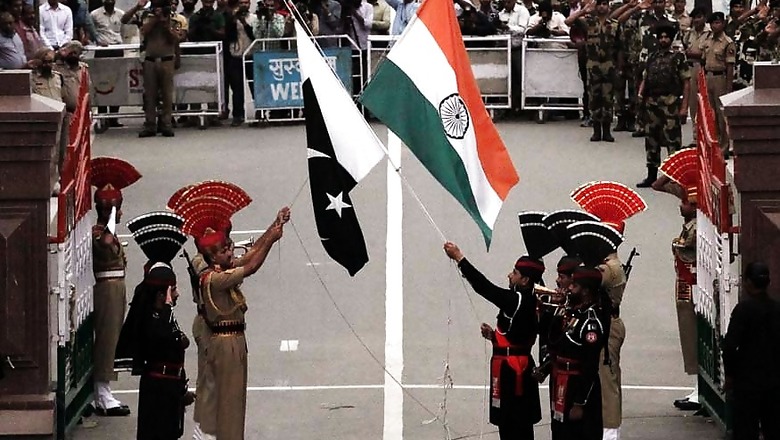
views
Attari (Indo-Pak Border): Kishan Singh owns a shop near the Attari Railway Station. Ask him how far Pakistan is from his shop and he points to the railway track: “Is fatak taun ik kilometer agge Pakistan lag jaanda (Pakistan is just a kilometre after this railway crossing).”
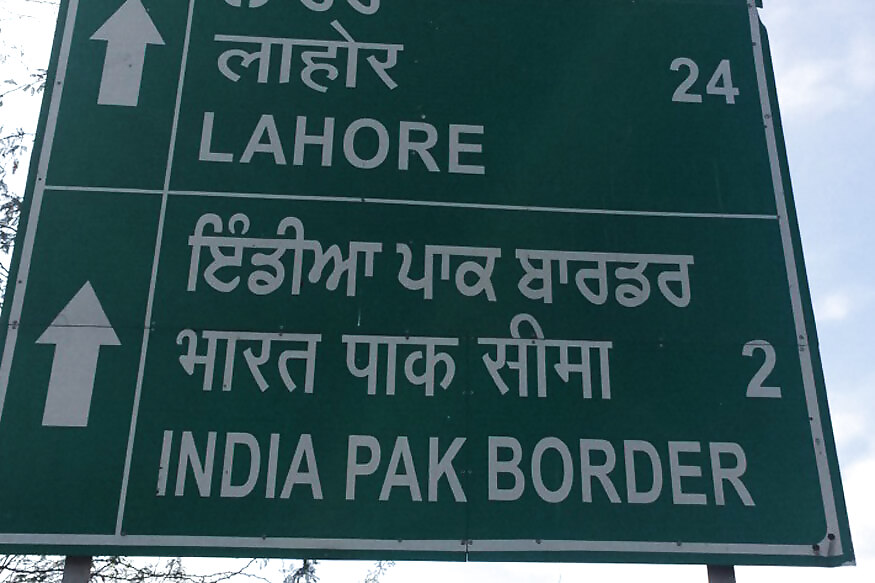
But that border came even closer when Indian Army conducted surgical strikes in Pakistan Occupied Kashmir (POK) to destroy terrorist launch pads.
A day after the strikes, Home Minister Rajnath Singh called Punjab Chief Minister Parkash Singh Badal and asked the state government to evacuate villages bordering Pakistan. India expected Pakistan to retaliate along the international border in Punjab or the Line of Control (LoC) in Kashmir. Singh, like hundreds of others in Attari sector, was forced to leave his home.
“What else can we do but evacuate when the government asks us to move? We packed up everything and left the village like everyone else. Luckily, I have relatives in Amritsar so we found a place to stay. Since I own a grocery shop, I took some of my stock so that we could live off it for a few days without bothering my relatives. We thought it would only last a few days but we ended up staying in Amritsar for a month and a half,” he says.
Suchitra Devi, his wife, chimes in. “Everything was thrown out of gear. We had to shut our shop for a month. My husband and I could not find any work in Amritsar on such short notice so we had to live off our savings. Our children couldn’t go to school and even our relatives were getting sick of us. It was a terrible time.”
The approach to the Pakistan border is lined with lush green fields on either side. Gurtej Singh, a farmer from Neshta village, is on his way to Attari when he stops to talk about the losses he suffered when his crops were left unattended for over a month.
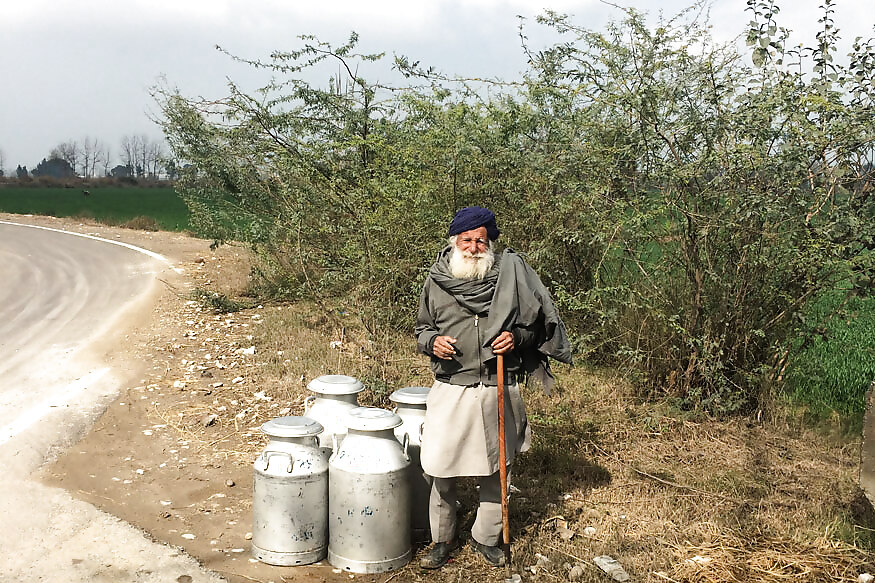
“I was growing paddy, and as you know, it needs to be watered constantly. Suddenly, the government told us that we have to leave our homes. There was nobody to water the crops. Some of the younger farmers managed to sneak in at the middle of the night to water their crops or harvest them but I couldn’t do so. I had to suffer huge losses because of that. Sarkar taun badla jaroor lavenge election de vich (We will surely extract our revenge from the government during this election),” he says.
Jarnail Singh, all of 85, says he has lived in Roranwala village even before Pakistan came into existence. He remembers family outings to Lahore as a child. “Pehlan ikko hi mulk si (Earlier, all this was one country). I grew up with people who shifted to that side of the border after partition. They are just like us. I think the threat of Pakistan is always greatly exaggerated. Mainnu taan lagda eh Modi-Badal di saazish aa. (I think this is a conspiracy by Modi and Badal),” he says.
The octogenarian says that he will vote Congress this time. “They are an old party that we can always trust. They will not do anything radical or rash. They will respect people’s livelihood. Captain Amarinder Singh is popular here as well. Most people in my generation are going to go with an experienced party that we can trust,” Jarnail Singh says.
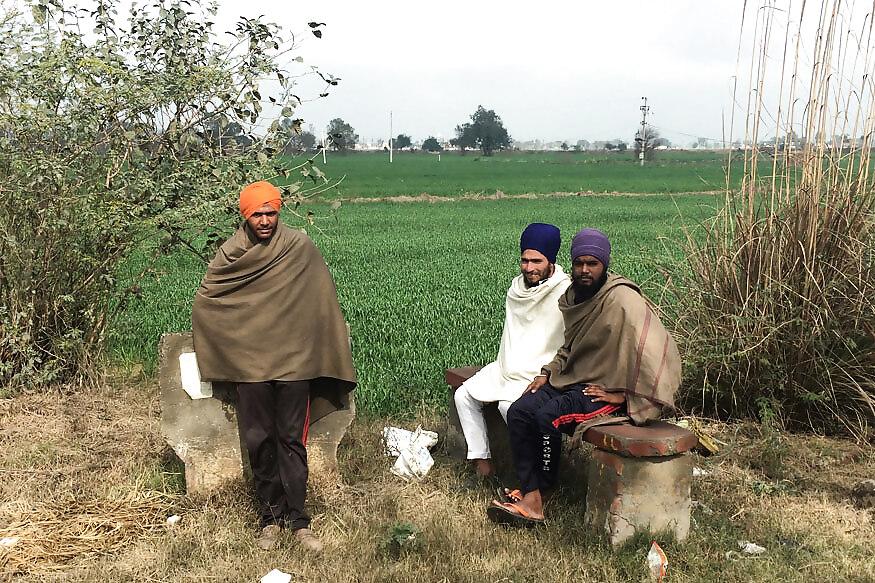
The age divide in Attari is evident. While Jarnail Singh and others in his age group are solidly in the Congress camp, the younger lot sees a new alternative in AAP candidate Jaswinder Singh Jahangir. At 23, Jagtar Singh ‘Jagga’ who works at a photocopy shop in Attari’s main market, is a first-time voter. “The AAP is on the rise here. I think they can win the Attari seat. All my friends will vote for them and I will too. Recently, Ghuggi (AAP Punjab convener Gurpreet Singh Waraich) came to Attari to address a meeting. Thousands of people turned up. I think that meeting turned the tide in their favor,” he says.
Jagga is proud of the fact that while many boys his age have fallen into the drug trap, he has managed to stay clean. He adds, “I like the AAP slogan – Na chitte nu na daaru nu, vote payenge jhaadu nu (Neither for drugs nor for alcohol, we will vote for the broom).”
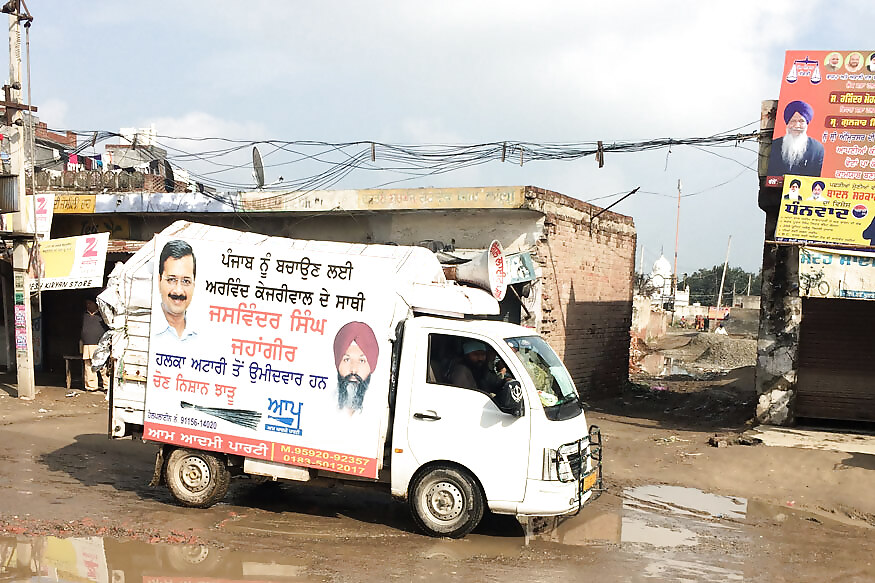
While there are reports of the drug menace claiming lives coming from all over Punjab, the border districts are perhaps the worst hit. An Attari resident, who does not wish to be identified, is skeptical of AAP and Congress’s claims that they will end the drug trade in Punjab.
“I will still vote for one of these parties but I don’t think they can end the drug trade here. They need to understand that Attari’s economy is based on the drug trade. It doesn’t matter if there are deaths in every family. Those who earn big bucks from the drug trade will not stop. People in Attari can literally walk into Pakistan. Some people on the other side even manage to dig tunnels and get into India. Wagah and Attari are adjoining villages on either side. It is virtually impossible to stop this trade,” he says.
As he sits by a tea shop in Attari and looks at a potholed road filled with rain water, Jagga, who has never been to Pakistan despite living so close to it, wonders out loud, “Pakistan must be less developed than us, right?"













Comments
0 comment